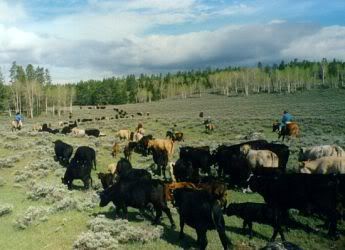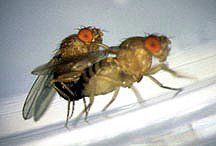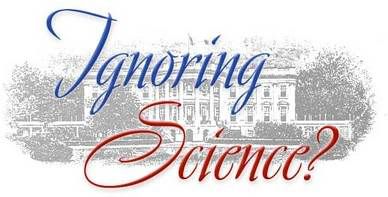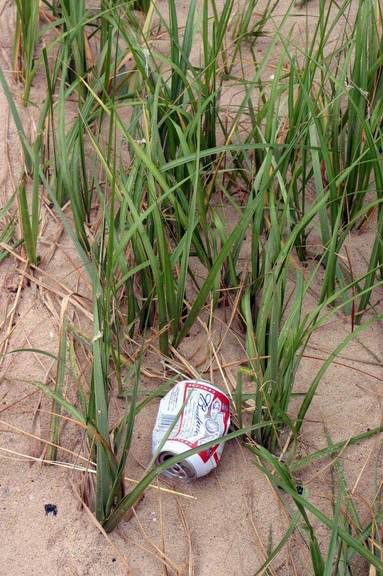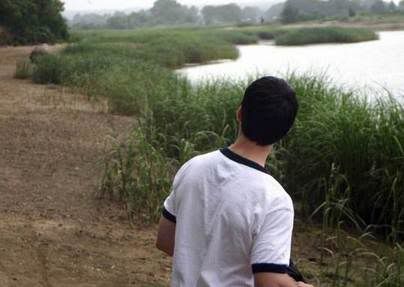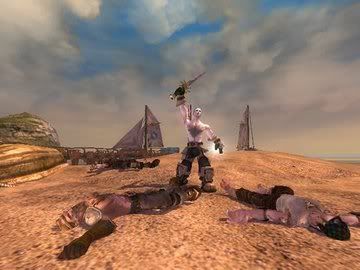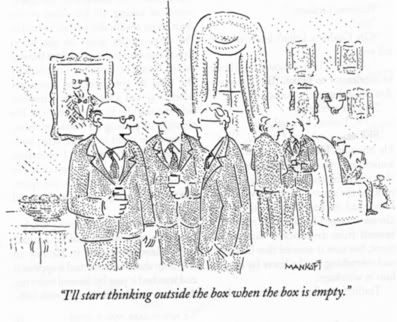Birthday boy, Recon, of
Monkeys for Helping fame, "infected" me with this meme. In honor of his 28th year, I will agreeably respond to the questions...then I will pray for no further meme infections.
1. What were three of the stupidest things you have done in your life?I'm not sure if these are really the three
stupidest things I have done; I've done some profoundly stupid things in the last 27 years, as we all have, and many are perhaps more stupid than the three below, but these are at least amusing.
1)
Four or Five years old: Zipping up my foreskin in Winnie the Pooh one-piece pajamas. Shocked and awed, I decided screaming and tearing at the fabric made more sense than unzipping. I still shudder when I think of the experience.
2)
Ten or eleven years old: Missing the bell jar top with the knife, instead plunging the blade in one side of my hand and having it emerge on the other. I was making a temporary home for catepillars. Hell....it was worth it and, frankly, I wish the little scar was more pronounced.
3)
Seventeen years old: Electing to change the trajectory of an orange launched from my window via three-man slingshot. Instead of sending the fruit far out over Noxontown pond, I aimed it down into a crowd of teens playing volleyball, striking a large football player squarely in the back of the head. His baseball hat lept forward as he fell, unconscious and tree-like, onto his face. Within minutes, every spectator knew where the orange had come from and who had aimed it.
2. At the current moment, who has the most influence in your life?No one person is profoundly influencing me "at the current moment." Instead, I would have to post a long list of all the individuals who continue to have an impact on me, whether through prose, painting, actions or friendship. I'm too lazy to do so.
3. If you were given a time machine that functioned, and you were allowed to only pick up to five people to dine with, who would you pick?This is a tough question. I fear that many of my dead heros wouldn't be as interesting in person as I prefer to believe. Their written, remaining thoughts are those that have been filtered and more carefully considered. For all I know, if I sat down to dine with Benjamin Franklin, much of the visit would be spent discussing the cooking skills of his staff or his having vomited on his most recent trans-Atlantic crossing. As a result, I'm changing the question. Below are five people I would like to interact with, but in different settings.
1)
Adolf Hitler - for observational purposes. I want to sit quietly in the corner and study him as he paints or writes, prior to his move toward politics and the terrible performance art that is his legacy. I'm fascinated by people consumed by ambition, particularly those willing to do whatever it takes to achieve fame, even if it may be infamy. (I know some readers will suddenly think I'm a racist Nazi, but I assure you this is not the case. I may be guilty of a macabre and off-center sensibility, however.)
2)
Vladmir Nabokov - to assist him in his butterfly studies, whether on the mountainsides of Europe or indoors with his cataloged collection.
3)
Charles Darwin - to assist him in the Galapagos, sharing in his passion and excitement.
4) Either a male or female
Homo erectus - just as they transition into
Homo sapien, I want to observe them for several weeks; I assume this gives me a window of several hundred thousand years.
5)
Edward Hoagland - dinner and a lengthy conversation would be fine.
4. If you had three wishes that were not supernatural, what would they be?1) I'd like to say that I'm above wishing for riches, but if we're avoiding the supernatural here, I can't very well wish for multiple lives or "all the time in the world." So money will have to buy me time in which to focus on painting, traveling and writing. Also, if wealthy enough, I could pour a lot more money into social and environmental projects than I do now.
2) This will sound super-cheesy, but it is something I have actually wished for many, many times. I wish that all those people I care about and respect will have fruitful, productive lives which ultimately make them happy...the sort of happiness I imagine one feels as death approaches and you consider your accomplishments and choices.
3) Finally, and most importantly, I wish the species
Homo sapien would learn how to live sustainably, focusing on the betterment of all species and our shared home.
5. Someone is visiting your hometown/place where you live at the moment. Name two things you regret your city not having, and two things people should avoid.1) Public bicycles and plentiful bike racks, Netherlands style. Sadly, I fear we Americans would just steal all the bicycles.
2) Better recycling. As is, there is no way to confirm that what I put in the paper recycling bin gets recycled, either at work or at home. In fact, I often see the superintendent's crew throwing all the bags into one big pile on pick-up day and the university custodian dumping the contents of my paper bin into the bigger trashcans. This drives me crazy. I would prefer the city install special dumpsters for recyclables throughout each neigborhood, just as many rural communities do. That way, I can sort the glass, paper and metals myself, ensuring these items find their way to the appropriate place...even though I still can't be sure they will make it to the recycling plant.
1) Raccoons that amble through Central Park during daylight hours.
2) Mid-town Manhattan.
6. What was the last movie you saw?"Dodgeball: A True Underdog Story." I had to cat sit for a friend when he left town for a wedding and, while playing with his cat, I noticed the DVD in his collection. In lieu of money, I accepted a borrowed DVD. Not surprisingly, it wasn't very good - I haven't enjoyed any of the recent comedies that Stiller, Wilson, Vaughn and company have produced or performed in, even though I enjoy all of their personalities in the abstract. There were some very funny moments, though, and the first fifteen minutes had me chuckling consistently.
7. Name one event that has changed your life.There have been several events which left me notably changed in some way. Some of them I don't feel like discussing in this venue; they are better left for conversations with close friends and loved ones. Others I have touched on in previous posts, particularly those dealing with the emotional impact of killing. I'll only mention one event here, though, as it was very formative. In the interest of time, I've "cut and pasted" the text below from a comment I made over at
The Vitriolic Monkey months ago.
For me, those lessons sank in when I was visiting Nicaragua, just after the Iran-Contra excitement. I was around twelve years of age, accompanying my father and a group of journalists up the San Juan river to Managua. The country was hoping to alleviate some of the financial and political fallout of the recent conflict by building an eco-tourism industry. Our trip upriver introduced this young American to many new things - though I had already spent some time in Central America, this was my first taste of real poverty and subsistence living - but my profound transformation occurred mid-way through the trip. On one of our side treks, we came out of a jungle path and approached an open, unplanted field. A farmer living near the field explained that it was a live minefield. One of our translators asked if we could send a cow ahead of our group. The farmer informed us that his cattle were too valuable, but that he would send one of his children. And so I found myself nervously walking through a minefield with a little Nicaraguan boy walking ahead of me. If he blew up, no big deal. If the little American blows up, big deal. Had I been less shy back then, I would have embraced him once we were safely through the field and back in the jungle. My embrace would not have been meant as a thank you, but as a horrified apology and repentance.
8. If you had to be one character from Bill and Ted's excellent adventure, who would you be and why?This will upset some people I know - maybe even a lot of people I know - but I've only seen "Bill and Ted's Excellent Adventure" once. I was twelve years old at the time. I used to go to a summer camp in Greenbrier, West Virginia and on rainy days they would show movies. I was annoyed that I couldn't practice archery that morning and devoted only half of my attention to the movie and the other half to the clouds, hoping for a break in the front. None came.
9. Tag 5 people.Na gon' do-it. Despite my love of biological and cultural memes, I'm not sure the blogosphere/email variety counts. Here's what I'll do instead. If you want to grab this meme and run with it, please do. You can say you were voluntarily infected.



